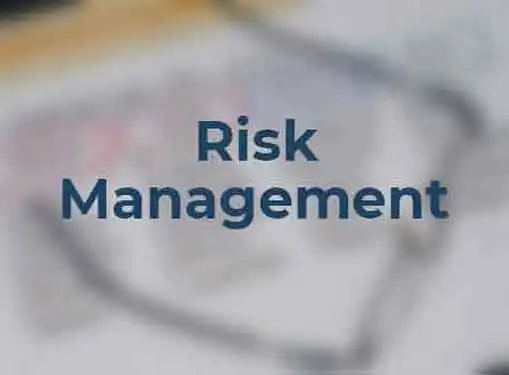Business Finance
Risk Management
Written by Clayton Reeves for Gaebler Ventures
Risk management needs to be integrated into every facet of your operations. Entrepreneurs and small business owners have the luxury of being able to implement these systems at ground level. Learn why your small business should be concerned with risk now.
In general, business is simply the process of successfully choosing how and when to manage opportunity and risks.

The market is evolving into such a complex machine, that it is sometimes difficult to measure and successfully hedge against all of the risks that a firm faces. For larger firms, although the risks are more diverse, there is also a greater allocation of capital towards risk management. It can be quite a different story for start up firms, entrepreneurs or small businesses.
Small businesses often times are scratching to make even or spending time in the red marketing a product. Although money is very tight, risk management can still be beneficial to small firms. Actually, it is easiest to install a sort of enterprise risk management (ERM) program when a company is young. If it is implemented early, it will become engrained in the culture of the business and provide returns for years to come.
Here are some of the most important things when considering implementing any sort of risk management program.
Make sure the system is all encompassing and holistic
If it is not, then the system will not perform in the way it was intended. Communicating between different divisions of the business is difficult for large corporations, but can be quite simple for a small business.
Ensure the company was a well defined risk appetite
Managing risk in a modern market place involves taking every risk that the company faces into account and creating a risk appetite. In the same way that a firm can calculate its weighted average cost of capital (WACC) using a formula, they must create a way to measure their optimal risk appetite. This holistic approach will yield dividends as the company expands and the risk structure is already built into the model.
Company culture must be aligned with the system
Expanding on the holistic nature of an ERM, company culture must be committed to using the system as a way to gauge risk and opportunity. If the employees are not considered when implementing any sort of risk controls, they will display anything from lackluster support to outright sabotage. Without engagement from employees, any business initiative will surely fail. Having good people surrounding the system will make it flow and create value for the firm.
ERM is attractive to potential investors in your company
For a small business, an infantile ERM system may make potential investors more likely to invest in the company. Enterprise risk management is a major topic for many corporations, and a commitment to ensuring that risks are hedged and opportunities are taken advantage of can give investors confidence that the management team is headed down the right road.
This may seem like overkill for a small business, but in a world where a credit crisis can seemingly sneak up on everyone, risk management will continue to be a topic of increasing importance for years to come.
When he's not playing racquetball or studying for a class, Clayton Reeves enjoys writing articles about entrepreneurship. He is currently an MBA student at the University of Missouri with a concentration in Economics and Finance.
Share this article
Additional Resources for Entrepreneurs

Conversation Board
What's your company's approach to risk management? We welcome all comments and questions.